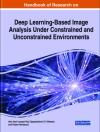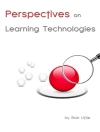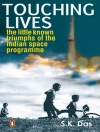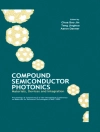The future of surgery is intrinsically linked to the future of computational sciences: the medical act will be computer assisted at every single step, from planning to post-surgery recovery and through the surgical procedure itself. Looking back at the history of surgery, surgery practice has changed drama- cally with the extensive use of revolutionary techniques, such as medical imaging, laparoscopy, endoscopy, sensors and actuators, and robots. This trend is dependent on the use of computer processing, computational method, and virtualization. Computational surgery will not only improve the ef?ciency and quality of surgery, but will also give new access to very complex operations that require extreme precision and minimum intrusion. Such examples are today’s inoperable cancer tumors that have invaded critical tissues or nervous centers. In order for this milestone to be reached quicker and more ef?ciently, surgeons will have to become very familiar with computing methods, such as image analysis, augmented re- ity, and/or robotics. It will be critical for surgeons to assimilate computers in their training, understand how computers work, understand the limitations/advantages of these computer tools, and be able to interpret computer imaging and simulations.
Daftar Isi
Computer Assisted Management of Disease and Surgery.- Breast-Conserving Therapy for Breast Cancer: Targets for Investigation to Improve Results.- Changing Paradigms in the Management of Peripheral Vascular Disease: The Need for Integration of Knowledge, Imaging, and Therapeutics.- Image Processing and Diagnostics.- Brain MRI Segmentation.- Knowledge-Driven Recognition and Segmentation of Internal Brain Structures in 3D MRI.- New Dimensions in Diagnostic Imaging of the Aorta.- Methodological Advances on Pulse Measurement through Functional Imaging.- Parallel Multispectral Image Segmentation for Computer Aided Thyroid Cytology.- Image Driven Intervention and Robotics.- Computer-Assisted Digestive Surgery.- Design of a Robotized Flexible Endoscope for Natural Orifice Transluminal Endoscopic Surgery.- MRI-Guided Robot-Assisted Interventions: An Opportunity and a Challenge in Computational Surgery.- Image-Guided Interventions and Robotics.- Modeling, Simulation and Experimental Data.- Emerging Mechanisms of Vein Graft Failure: The Dynamic Interaction of Hemodynamics and the Vascular Response to Injury.- Modeling and Role of Leukocytes in Inflammation.- Multi-modality Imaging for the Simulation of Cerebral Aneurysm Blood Flow Dynamics.- Training.- A Computational Framework for Breast Surgery: Application to Breast Conserving Therapy.- Simulators in Training.- A Computational Desk for Surgeons.












